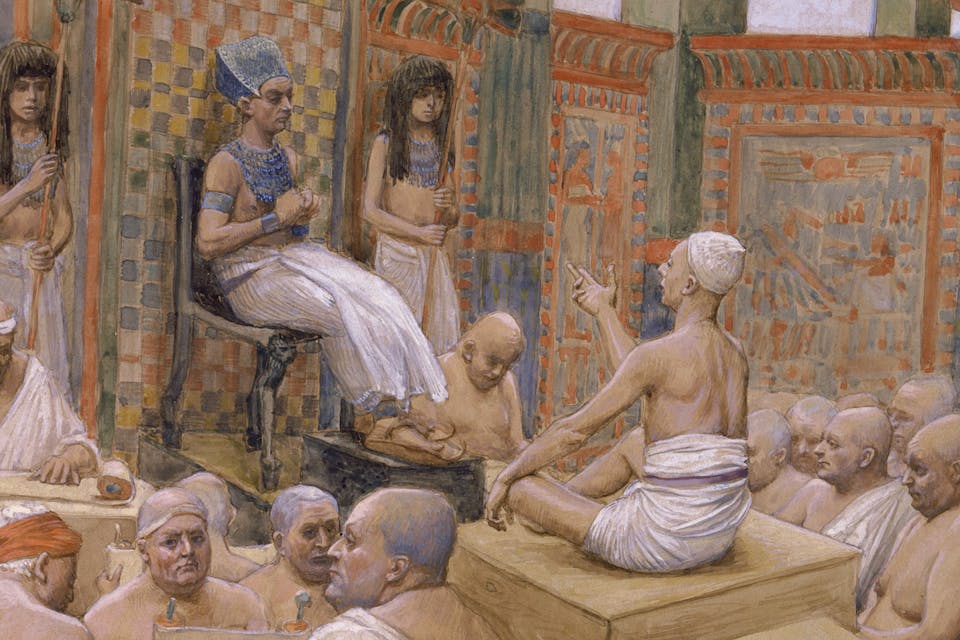
December 11, 2015
The Crucial Contrast Between Joseph and Moses
Moses acts, while Joseph sees himself as being acted upon.
This week’s Torah reading (Genesis 41:1 – 44:17) starts with the word miketz, “at the end,” signifying the conclusion of Joseph’s early period of struggle and imprisonment in Egypt and the start of his rise to power under Pharaoh. Actually, the entire next phase of Israelite history is prefigured in this reading—a phase that will end in liberation and exodus. At both the beginning and the end, we find the Egyptian ruler in deep water: figuratively in the first case, literally in the second. But there is a great difference between the personality of Joseph, the Jew upon whom this week’s Pharaoh leans, and that of Moses, whom a later Pharaoh will chase to the water’s edge and beyond.
And it was at the end of two entire years of days
And Pharaoh was dreaming
And here he was standing at the Nile
And here were seven fine-looking and fairly fleshed cows
And they grazed in the meadow.
But here seven other cows rose after them out of the Nile,
Bad-looking and barely fleshed
And they stood by the cows at the bank of the Nile
And the bad-looking and barely fleshed cows
Ate the good-looking and healthy ones
And Pharaoh awoke.
Jumping forward, I can’t help noting the contrast between Joseph’s interpretation of Pharaoh’s dream (and his second dream about healthy and blasted ears of corn) and Moses’ response in Exodus to Pharaoh’s demand for a sign of his divinely mandated mission. Joseph is a psychologist, and his follow-up advice takes the form of an action plan to be implemented by an unnamed “man of vision.” Moses, accompanied by his brother Aaron, is a prophet. The two throw to the ground a thin and barely fleshed stick, soon to be joined by the ornately worked and glamorous sticks of Pharaoh’s scholars and magicians. All of the sticks will turn to snakes, but Moses’ snake will eat the Egyptian snakes.